Wellness Clinic
Wellness fits into healthcare by emphasizing prevention, holistic care, and lifestyle changes. It complements traditional medicine by promoting healthy habits and reducing disease risk.

Fiji is a tropical paradise, and more than that, it is the epitome of holistic health through Wellness Fiji. This ground-breaking program merges ancient methods with modern knowledge to redefine health as prevention and total well-being centered on communities. Find out how Wellness Fiji is bringing about wellness beyond traditional approaches.
What is holistic health, and how is it practiced in Fiji?
Holistic health in Fiji involves integrating physical, mental, and spiritual well-being. Practices include traditional healing, yoga, meditation, and natural therapies. Fijian culture emphasizes community and connection with nature, supporting a balanced lifestyle through holistic health practices.
Holistic health in Fiji depicts an attitude towards life that combines some traditional practices with modern wellness approaches. Traditional Fijian healing uses natural herbs and massage for most physical and emotional ailments. Yoga and meditation are other popular practices for developing mental clarity and emotional stability.
The Fijian culture encompasses community and spiritual bonding as part of health, so the two aspects are a means to a support system that strengthens the whole being of a person. The practices ensure that one will be able to keep one’s life balanced and in harmony, hence contributing to a healthier and more contented existence.
How has Fijian culture influenced wellness practices?
Fijian culture influences wellness practices through its focus on community, nature, and spirituality. Traditional healing, natural remedies, and communal activities are central. These cultural elements promote holistic well-being, emphasizing balance and harmony in daily life.
In fact, the wellness practices of Fijian origin also had a great influence on its culture. This has recognized the inclusiveness of the individual and his or her interrelationship with nature and the community. The traditional healing techniques often include social rituals and ceremonies to strengthen social ties and spiritual bonding.
Its usage of natural herbal remedies and other local herbs reflects a deep reverence for the natural environment as being a source of healing and vitality. It fosters a holistic approach to health, viewing the experience of physical, mental, and spiritual dimensions as a means to achieve balance and harmony. Wellness within Fijian culture is shared and communal in its emphasis on community life and spirituality.
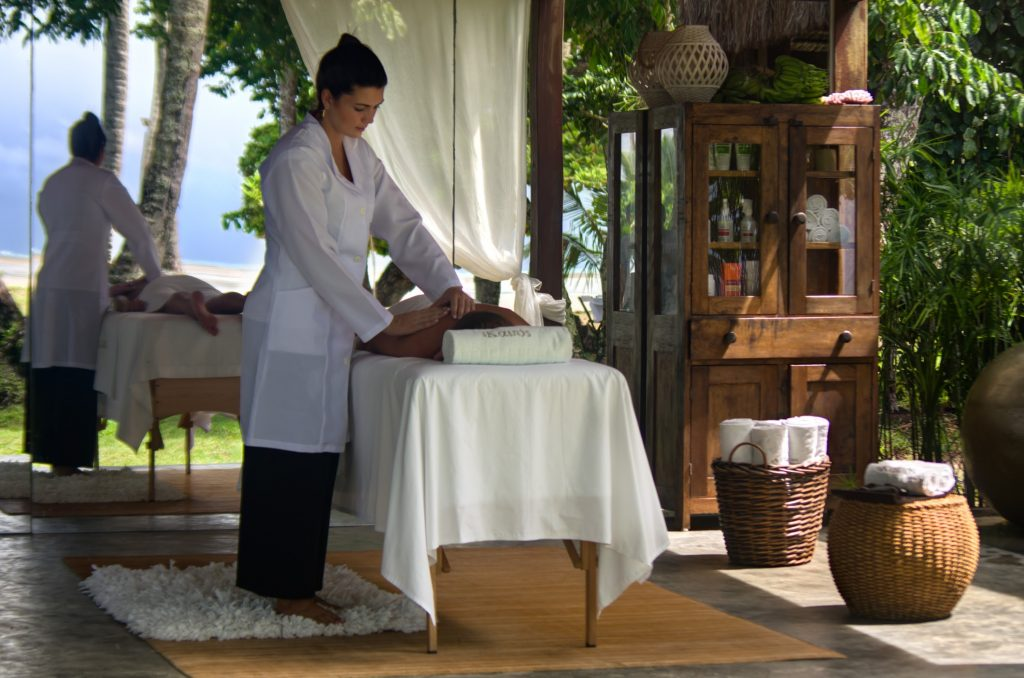
What are some of the advantages that could be derived from traditional Fijian healing methods?
Traditional Fijian healing methods offer benefits like stress reduction, improved immunity, and enhanced spiritual connection. Using methods like natural herbs, massage, and spiritual practices address physical and emotional health, fostering overall well-being.
The basis of the traditional healing techniques of the Fijians is in the utilization of natural resources and spiritual practices, whether it be for physical or emotional health. These local herbs and plants have the capacity to produce natural remedies that give the best immunity and enhance the healing process. Massage techniques, usually performed with coconut oil, help relieve stress and improve blood flow.
Spiritual activities like rituals and ceremonies give the individual a closer relationship with his or her community, thus creating a sense of belonging that leads to spiritual health. Holistic practices offer a complete schematic of processes for maintaining good health, such as offering a balanced and harmonious life for overall well-being.
How does Fiji's wellness retreat create an environment for holistic health?
Wellness retreats in Fiji enhance holistic health by offering yoga, meditation, detox programs, and natural therapies. The serene environment fosters relaxation and introspection, helping participants achieve physical and mental balance.
Wellness retreats in Fiji ensure a serene atmosphere away from the distractions of everyday life, which a person can use to focus on his or her well-being. Such retreats usually involve activities such as yoga and meditation classes to help attain mental clarity and emotional stability. Detox programs, possibly involving consultations regarding nutrition and cleansing, refresh the body and mind.
The pristine beaches and lush landscapes of Fiji will open the way to this, combined with the ideal setting for reflection and relaxation. Participants can achieve a greater state of balance and well-being by immersing themselves in holistic practices, thus making a retreat a very valuable component of holistic health.

What position does nature take within wellness practices among the Fijians?
Nature plays a central role in Fijian wellness practices, providing a peaceful setting for relaxation and healing. Activities like beach meditation and forest walks promote physical and mental well-being, highlighting the importance of natural surroundings in holistic health.
Nature and well-being thrive together in Fiji. The peace and healing properties of nature complement the physical and mental healing of the country. The pristine natural setting provided by the islands enables activities such as beach meditation and forest walking, driving people to states of mindfulness and relaxation.
Nature allows a person to forget about life pressures and start anew. Traditional healing is also a big part of the natural environment, in which herbs and plants grown locally are used for their medicinal value. This close affinity to nature then underlines the holistic approach to wellness embodied by Fiji, stressing the balance and harmony of individuals with nature.
Conclusion
To sum up, Wellness Fiji embodies a paradigm shift in health beyond traditional medical models. It addresses both physical and emotional aspects of health by focusing on holistic well-being and preventive care. Following this philosophy could bring about deep transformations for individuals as well as communities’ overall wellbeing. Find out more about Wellness Fiji today and explore how you might join this groundbreaking movement towards a healthier future.
References
Wellness Clinic
Wellness fits into healthcare by emphasizing prevention, holistic care, and lifestyle changes. It complements traditional medicine by promoting healthy habits and reducing disease risk.

Have you ever asked yourself why healthcare revolves around wellness? It’s not a fad or popular phrase it’s a factor critical to maintaining and improving overall health. Wellness means much more than just not being sick, it encompasses all aspects of our lives including physical, mental, and emotional well-being. In such a modern world with constant rush hours, concentrating on well-being may save us from diseases, prolong our lives, and make us healthier. Let’s consider some reasons why healthcare should always include wellness as part of its services.
How does wellness fit into healthcare?
Wellness fits into healthcare by emphasizing prevention, holistic care, and lifestyle changes. It complements traditional medicine by promoting healthy habits and reducing disease risk.
Wellness integrates into health care by encouraging one to be proactive in maintaining physical, mental, and emotional health. This integration helps reduce healthcare costs by encouraging the adoption of life-changing and preventive measures, thus improving poor outcomes in patients and addressing the root causes of illnesses.
By shifting the focus from treatment to the betterment of general health, wellness sustains a comprehensive healthcare model that empowers individuals to take charge of their health and well-being, thus leading them to more effective, viable healthcare solutions.
What are the benefits of including wellness in healthcare?
Including wellness in healthcare offers benefits like improved patient outcomes, reduced healthcare costs, and enhanced quality of life. Wellness practices promote disease prevention and stress reduction.
Wellness practices assist in balancing one’s emotions, which enables patients to start living healthier lifestyles. The practices that lead to holistic health lead to few medical interventions and long-term better results. The inclusion of wellness in healthcare provides patients with resources and motivation to take control of their health and health care. It enables them to build resilience and at the same time reduces the burden on health systems.
With greater emphasis on prevention and lifestyle modification, wellness can be a good way to enhance patient satisfaction and support chronic disease management to make sure more people in a community will ameliorate their lives. This will help take the load off health services and motivate a more streamlined and effective system of care aimed at well-being and quality of life.
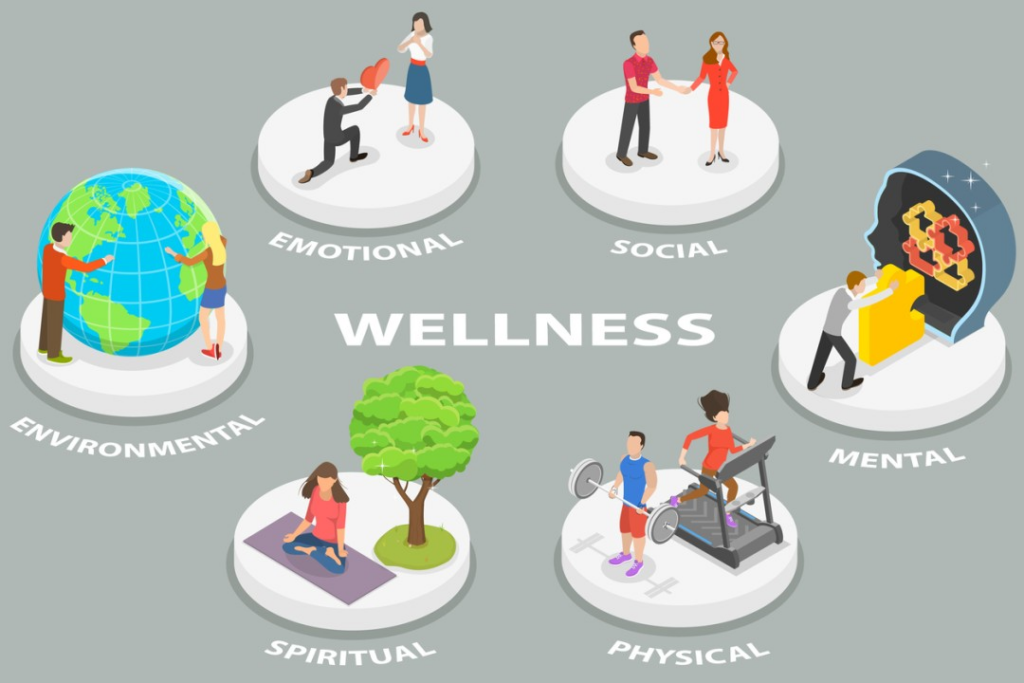
How does wellness improve patient outcomes?
Wellness improves patient outcomes by promoting preventive care, stress management, and lifestyle changes. These practices reduce the risk of chronic diseases and enhance mental health.
Wellness addresses all-round health issues that enable a patient to adopt and inhabit around healthier behaviors that will positively change their status and recovery. Wellness practices offer the patient the knowledge for better stress management, nutrition, and physical activity factors that enhance increased resilience and quicker recovery.
It is in accordance with the contemporary goals of healthcare since such a proactive approach creates a supporting environment for patients, thus eventually empowering them in the process of securing control over their health journey with enhanced adherence, reduced complications, and overall good experience for both the patients and the providers.
What role does prevention play in wellness?
Prevention plays a crucial role in wellness by focusing on reducing disease risk through lifestyle changes and early interventions. It emphasizes healthy habits like nutrition and exercise.
When illnesses are prevented, wellness saves money for health care and improves quality of life. Encouraging individuals to embrace healthy lifestyles that prevent chronic diseases is an aspect of preventive medicine. A proactive approach enables people to avoid getting sick in the first place, meaning they may need less medical treatment when they do become ill.
By emphasizing prevention, healthcare systems can help ease the burden of chronic disease and improve population health, promoting a culture of well-being that encourages individuals to remain healthy throughout their lifetime and contributing to a healthier society.
How do holistic practices complement traditional healthcare?
Holistic practices complement traditional healthcare by addressing mental, emotional, and physical health aspects. They include techniques like meditation and nutrition, enhancing overall well-being.
The integrative model works hand-in-hand with medical therapies offering comprehensive care aimed at the healing process as well as long-term health. Additional tools for managing stress, improving mental health, or boosting physical resilience are offered by holistic approaches exemplified by yoga, mindfulness or dietary interventions.
By adopting these methods healthcare practitioners will be able to deal cause-effect relationship between ailments; boost patient engagement while encouraging sustained fitness development. This integration assumes a more patient-centred approach recognizing the complex interplay among mind body soul towards achieving optimal health outcomes.

How can healthcare providers incorporate wellness?
Healthcare providers can incorporate wellness by offering preventive screenings, promoting healthy lifestyle changes, and integrating stress management techniques. Educating patients on nutrition and exercise is key.
Providers who create an atmosphere of whole-person care improve both patient outcomes and satisfaction rate. Such practice incorporates programs related to wellness such as workshops where yoga or mindfulness is practiced; this assists patients in taking responsibility for their own lives.
For this reason, healthcare practitioners may integrate with individuals skilled in wellness or alternative treatments so that they can better serve their patients by constructing personalized treatment plans specifically adapted to meet each patient’s needs.
In addition to realizing these outcomes, providers should aim at enhanced patient experiences reflected through strong affiliations between them and their patients, making sure that there is an active participation of patients in their personal health care journey.
What challenges exist in integrating wellness into healthcare?
Integrating wellness into healthcare faces challenges like limited resources, resistance to change, and insufficient training. These barriers hinder adoption and implementation.
Overcoming them requires investment in education, policy adjustments, and a shift in healthcare culture towards a holistic, preventive model that would offer more sustainable solutions. The process therefore includes unlearning traditional approaches applied in medicine resulting from the realization of the prospects for long-term welfare practices for individual healing as well as population health management reducing the overall cost of care.
Through strategic tackling of such obstacles, healthcare institutions can then promote well-being solutions that drive up patient power while advancing quality management aimed towards a more sustainable yet effective contemporary fitness model stressing on overall condition of the human body.
The Key Takeaway on Wellness and Healthcare
Wellness should not only be included in your healthcare routine but is also indispensable. By focusing on preventive care, mental health, quality of life, and financial benefits of wellness you achieve healthier happier lives that are more satisfying. Take a step towards building your health today because achieving all these goals requires time investment. Put vital importance on yourself today so that you can enjoy its fruits for a lifetime. Remember that being healthy is not something done at once but rather a journey we undertake till our last breaths. Make it now! Benefit tomorrow.
References
Wellness Clinic
Wellness fits into healthcare by emphasizing prevention, holistic care, and lifestyle changes. It complements traditional medicine by promoting healthy habits and reducing disease risk.
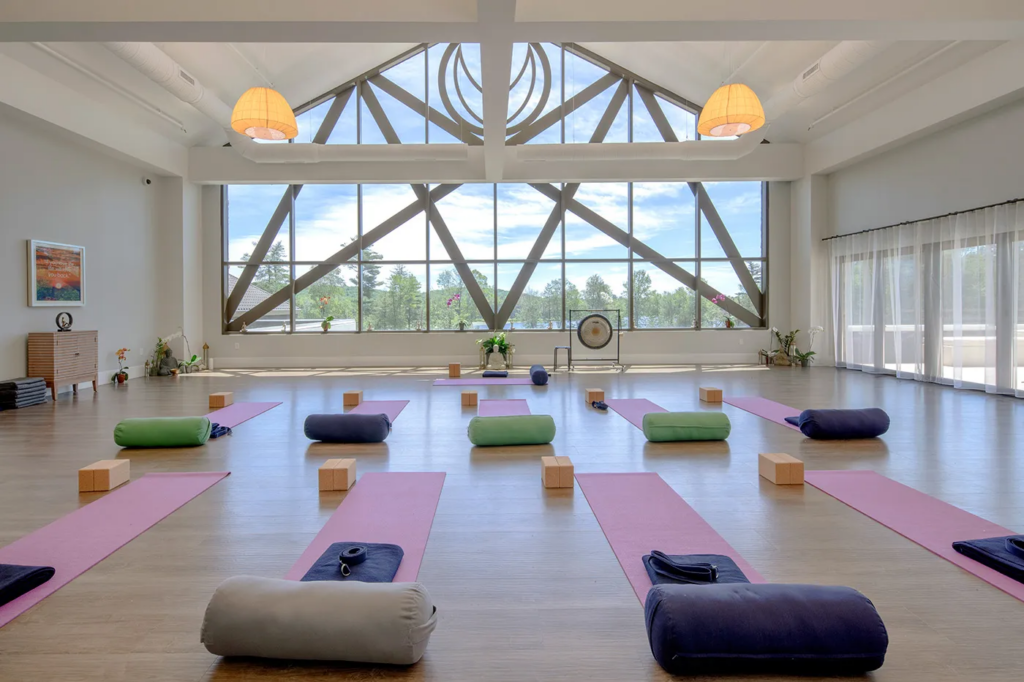
In our current world that is ever moving, with stress and lifestyle diseases on the increase, wellness clinics are increasingly becoming important for holistic health and preventive care. Clinics of this nature have a different perspective on what healthcare should be like.
They seek to heal not only illnesses but also ensure overall well-being and long life.
What Are Wellness Clinics?
Wellness clinics offer holistic health services focusing on preventive care, lifestyle management, and alternative therapies to promote overall well-being and support physical, mental, and emotional health.
Wellness clinics are medical centers concerned about prevention rather than cure. Traditional healthcare providers just aim at treating diseases while ignoring the underlying causes of such illnesses, in contrast to well-being focused facilities which strive at addressing root causes through use of both conventional medicine, alternative therapies and lifestyle modification.
Some examples of such types include; integrative clinic (that combines both traditional and alternative medicines), naturopathic clinic (concerned with natural remedies), or a massage therapy clinic among others.
Services may consist of regular screening services, full body checks, laboratory tests, and scans, and conventional medical treatments combined with alternative cures.
What Are Wellness Programs and Treatments?
Wellness programs and treatments include personalized health plans, fitness routines, nutritional guidance, stress management, and alternative therapies, aiming to improve overall well-being and prevent illness.
To be healthy, a person must consume the right foods. They are found in wellness clinics where nutritionists or dieticians create individual diet plans for their clients depending on their health conditions, objectives, and taste preferences. In addition, they may give advice concerning special food supplements meant to correct nutrient imbalances, among other health challenges arising.
Many wellness centers provide fitness solutions as part of their services. These can include personal training lessons, fitness classes for groups, or even physical therapy when recuperating from an injury or managing a persistent illness. The idea is to develop sustainable exercise behavior that encourages a prolonged healthy life.
What Are Some Mental Health Maintenance Methods?
Mental health maintenance methods in wellness clinics include counseling, stress management techniques, mindfulness practices, cognitive-behavioral therapy (CBT), meditation, and holistic approaches like yoga and sound therapy.
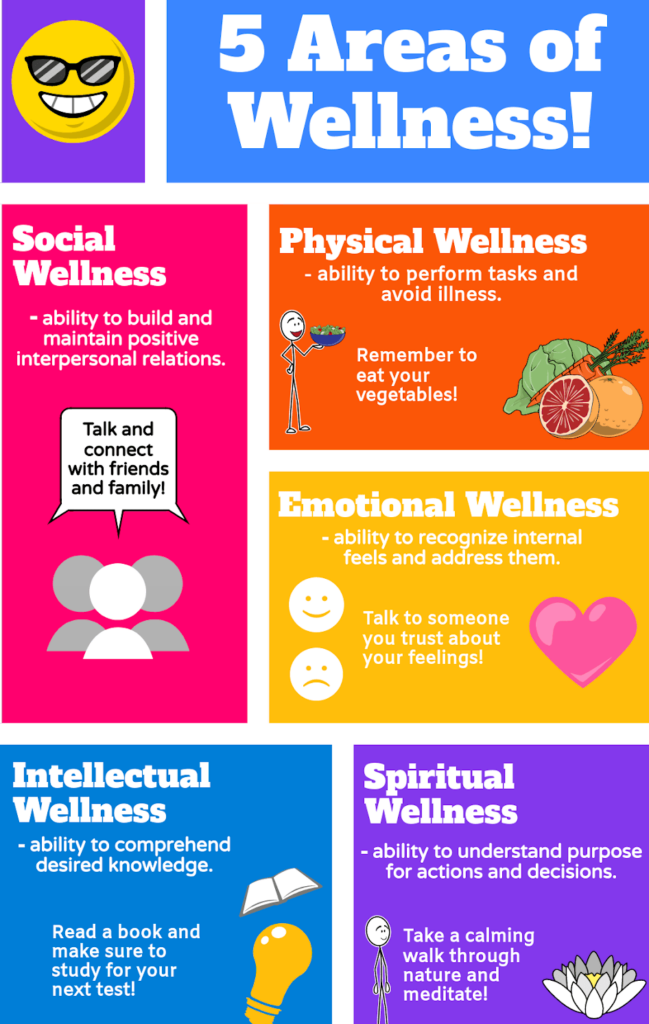
In most cases, wellness institutes strive to support mental well-being since the two are interconnected. This may involve offering counseling sessions and therapies as well as meditation practices like mindfulness or stress reduction methods including biofeedback or yoga classes.
Most healthcare facilities offering well-being programs also provide non-conventional treatments that complement traditional medicine approaches. For instance, acupuncture can be applied to numb muscles whereas chiropractic care is used to fix problems within the musculoskeletal system; and massage therapy is offered for relaxation purposes.
There are comprehensive management packages provided by wellness clinics for patients with chronic illnesses such as hypertension, diabetes mellitus, or ischemic heart disease. Such schemes incorporate medical measures with changes in lifestyle aimed at helping patients take control over their conditions adequately thus avoiding complications.
What Are Some Specialized Wellness Programs?
Wellness centers offer specialized services for women, including hormone therapy and menopause management, for men with testosterone therapy and prostate checks, and for seniors focusing on mobility, cognitive health, and aging issues.
Many wellness centers offer services that are tailored to address the peculiar health needs of women, such as hormone balancing therapies, menopause management, and specialized care for pregnant women and the postnatal period.
Similarly, wellness clinics often have programs designed specifically for men. These might include testosterone replacement therapy for those with hormonal imbalances, prostate health checks and fitness, as well as nutrition programs specially made for male physiological requirements.
There has been an increase in wellness centers providing special programs targeting the elderly population. These may focus on maintaining mobility plus balance, coping with age-related health problems as well as enhancing cognitive health that prevents or slows down the development of ailments like dementia.
What Are The Benefits of Visiting a Wellness Clinic?
Visiting a wellness clinic offers benefits such as personalized health plans, preventive care, stress management, holistic treatments, and improved physical, mental, and emotional well-being.
Wellbeing clinics look at an individual’s entire lifestyle and health history in order to develop a personal treatment plan that will be suitable for them. By stressing prevention, patients can avoid issues before they become serious problems.
This blend allows patients to take advantage of both worlds leading to more efficient and comprehensive treatment options being provided. The emphasis on overall well-being means patients do not just feel better physically but mentally and emotionally too.
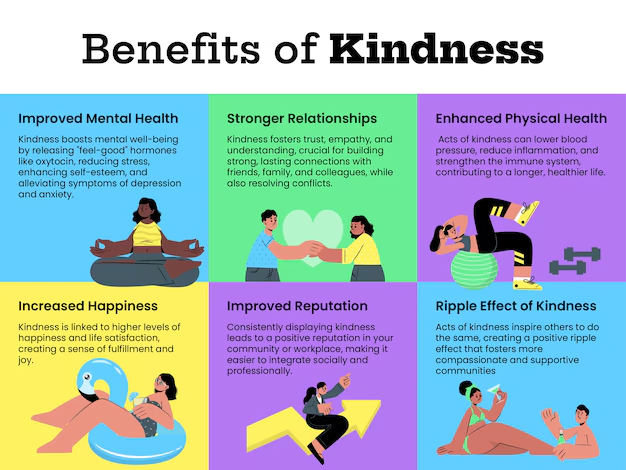
What Are The Four Types Of Wellness?
The four types of wellness are physical wellness (health and fitness), emotional wellness (mental health and stress management), social wellness (relationships and community), and spiritual wellness (purpose and values).
The four types of wellness are physical wellness, emotional wellness, social wellness, and intellectual wellness. Physical wellness includes taking care of your body through nutrition and exercise. Emotional well-being involves dealing with emotions and stresses that come our way. Social well-being entails positive interactions or relationships with others. Intellectual well-being includes intellectual growth and learning throughout your entire existence.
What Does Wellness Offer?
Wellness offers comprehensive support for physical health, mental well-being, emotional balance, and lifestyle improvements through preventive care, holistic treatments, and personalized health programs.
Wellness offers a holistic approach towards health care by promoting a balanced living style geared towards improving overall welfare. It covers areas such as physical fitness improvement strategies as well as emotional stability tactics, social connections and intellectual development which make life satisfying and healthier subsequently.
Does Wellness include mental health?
Yes, wellness includes mental health by addressing stress management, emotional balance, and mental clarity through holistic treatments, counseling, and strategies for overall psychological well-being.
Indeed, yes, it does include mental health. It is made up of emotional aspects as well as psychological ones, whereby stress management comes for good relationships with people around us, therefore sustaining a healthy mind.
Conclusion
There has been a change in the approach towards healthcare through the establishment of wellness clinics which have moved from reactive treatment model to proactive maintenance and enhancement of health. These clinics embody all aspects that make up a healthy lifestyle thereby empowering people to manage their own lives in terms of health.
If you are striving to control your chronic condition, improve your overall fitness, or just stay fit, think about integrating visits to this type of clinic into your medical program.
Reference
Wellness Clinic
Wellness fits into healthcare by emphasizing prevention, holistic care, and lifestyle changes. It complements traditional medicine by promoting healthy habits and reducing disease risk.

Health and fitness mean more than just the absence of disease; they refer to a positive approach towards living well. Unlike traditional healthcare that deals with already existing illnesses, well-being clinics are concerned about prevention as well as comprehensive health. Today, in this age of preventive care being paramount, wellness centers have become essential for all-round good health.
What services does one normally get in wellness clinics?
Health and wellness clinics typically offer services such as physical therapy, nutrition counseling, stress management, and fitness programs. They may also provide holistic treatments like acupuncture and massage therapy. These services aim to promote overall health and balance in clients’ physical, mental, and emotional well-being.
Health and wellness clinics seek to provide an all-inclusive package of services relevant to all areas of health. Physical therapy would help patients recover from injuries where mobility is necessary. Nutritional counseling will provide personal diet advice to achieve good health. Stress management programs will teach techniques to handle stress in an effective manner.
Fitness programs will promote physical activities that raise strength and endurance. Such programs also incorporate holistic treatments like acupuncture and massage to help the clients relax and heal. These clinics tend to balance the approach to health and wellness by addressing the physiological and psychological needs of the patients in order to ultimately guide them toward a healthy lifestyle.
How do wellness clinics facilitate mental health?
Wellness clinics support mental health through services like counseling, stress management workshops, and mindfulness programs. They focus on holistic approaches to improve emotional well-being, reduce anxiety, and enhance resilience. Regular participation can lead to better mental clarity and overall life satisfaction.
Wellness clinics have an influential contribution to supporting mental health through an arrangement of services that are geared toward enhancing a person’s emotional status.
Counseling encourages one to be free and open and to find a way of dealing with life’s challenges. Workshops in stress management are based on skills training in, among others, meditation, deep breathing, and other stress reduction activities.
Mindfulness programs are designed to promote an individual’s well-informed moment awareness of what goes on in their mind, body, and feelings for stress management and mental clarity.
Wellness clinics specifically aim to bring the person to the bottom-line causes of mental health problems by working on holistic approaches that can empower a client to build resilience and attain greater life satisfaction.

What role do nutritionists usually play in health and wellness clinics?
Nutritionists in health and wellness clinics provide personalized dietary advice to enhance health and prevent diseases. They assess individual nutritional needs, create balanced meal plans, and offer guidance on healthy eating habits. Their support helps clients achieve optimal health and maintain a balanced lifestyle.
Nutritionists are very important in health clinics because they counsel on nutritional habits to pursue general well-being. They evaluate the nutritional needs of each client by considering their specific case factors: age, lifestyle, or health goals. Nutritionists lead clients to make the right meal choices that promote good health and prevent chronic diseases through specialized meal planning.
They teach people how to eat a balanced diet, balancing every food with its nutrient equivalent in intake. Another thing this is an employed approach to their clients so that they can cultivate habits that bring effective change to their health and adjustment to life in general.

Can health and wellness clinics really help in the management of chronic pain?
Yes, health and wellness clinics help manage chronic pain through therapies like physical therapy, acupuncture, and massage. These treatments aim to reduce pain, improve mobility, and enhance quality of life. Clinics often create personalized plans to address individual needs and promote long-term relief.
Health and wellness clinics are fully equipped to help manage chronic pain through a multi-disciplinary approach combining different therapies. Physical therapy will include exercises and techniques that provide better muscle strength and an enhanced range of motion of joints to reduce pain and increase mobility.
Acupuncture is another holistic alternative technique to remediate pain by stimulating certain points in the body that can facilitate healing. Massage decreases muscle tension and improves blood flow. These improved blood flows help to reduce pain.
The clinics work closely with clients to develop a treatment plan best suited for each individual’s issues with pain and daily life, focusing on alleviating the pain in a long-lasting way.
How are wellness clinics applied to enhancing physical fitness?
Wellness clinics promote physical fitness through personalized fitness programs, group classes, and physical assessments. They provide tailored exercise plans that enhance strength, flexibility, and endurance. Regular participation in these programs supports cardiovascular health, weight management, and overall physical well-being.
Wellness clinics believe in physical fitness and offer a wide range of services to suit each particular need. Tailored individual programs are designed according to a full physical analysis, ensuring that the set of exercises corresponds to the level of fitness and goals of the client.
Group classes in yoga, pilates, or aerobics are conducted to provide an amicable atmosphere where one can develop one’s physical fitness while instilling a sense of community. Such programs aim to develop strength, flexibility, and endurance; hence, they are able to improve cardiovascular health and weight management. By attending such programs regularly, it becomes possible for clients to achieve better physiological well-being and a healthy lifestyle.
Conclusion
The conclusion of health and wellness clinics is that they take into account every aspect of individuals’ lives while seeking to enhance their general health. These facilities highly focus on averting disorders before they escalate, as well as customizing care plans for each patient. Physical, spiritual, mental, and emotional health are among the various areas that such centers address, hence providing invaluable service that can greatly improve people’s lives. One should, therefore, consider different ways of being healthy plus selecting a good clinic, but this may be confusing at times since there are many options available out there, thus making it hard to know which one suits you best in your journey towards well-being.
